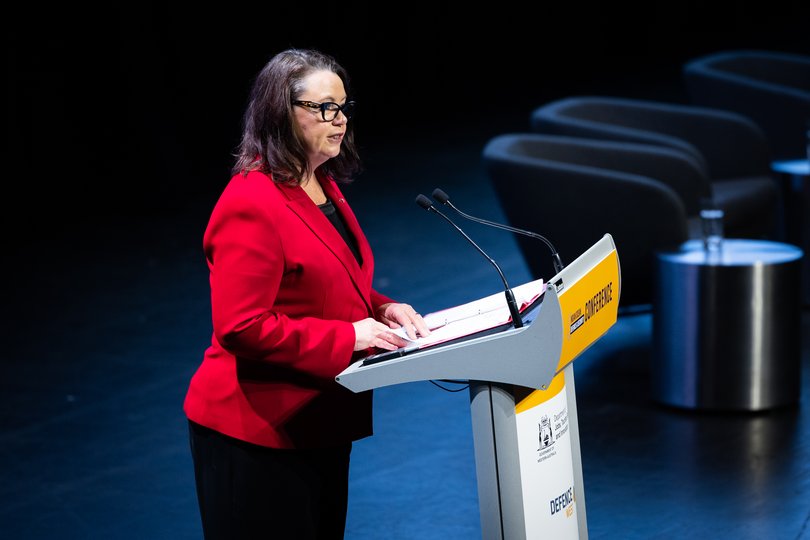US financier points to ‘permitting’ challenge for critical minerals projects

The US export-import bank chair says “permitting processes” — including environmental approvals — are a key challenge for Australian companies to get critical minerals projects off the ground.
The comments come as Resources Minister Madeleine King warns if the Coalition had its way, Australia would leave all the heavy lifting on critical minerals to its allies.
EXIM chair Reta Jo Lewis is in Australia for a week meeting resources companies and government officials to talk about how the US institution can provide financing for the vital sector.
Sign up to The Nightly's newsletters.
Get the first look at the digital newspaper, curated daily stories and breaking headlines delivered to your inbox.
By continuing you agree to our Terms and Privacy Policy.The Federal Government wants to power up the nascent domestic critical minerals processing industry, offering $13.7 billion in the last Budget in the form of production tax credits.
But the Coalition opposes these, counting them among the tens of billions in cuts it would make should it win the election and pointing to a goal to halve approval times and cut energy prices by building nuclear reactors over the next 25 years.

Ms Lewis said the length of time it took to process approvals was something that came up with people considering Australian projects.
“We also have had numerous conversations about the permitting process . . . that needs to harmonise through its regulatory framework that can make sure these investments are predictable to be able to encourage private investment into these kind of projects,” she told The West Australian.
“These are just some of the challenges that we see these projects have as they’re trying to move and get themselves off the ground.
“When we’re talking about what kind of coordinated role or coordinated action has to take place, these are the companies that are having those permitting conversations directly with government.”
EXIM is interested in funding projects across the critical minerals ecosystem, including processing raw materials, and has teamed up with local counterpart Export Finance Australia to create a single point of entry for both agencies’ financing tools.
“We want to engage with the industry to let them know that we have the ability, from a technical and a legal and a financial risk perspective, to analyse all of these types of projects that might come before us in the mining and energy sector,” Ms Lewis said.
The aim is to make these projects competitive on a global scale.
The US and other friendly countries have been increasingly concerned about China’s dominance in processing the resources vital to clean energy and high-powered computing technology.
Ms King said Australian projects were also attracting interest from state financiers in Japan, Korea and Canada.
“(Those countries) all know that they need to shore up the supply chain and we can’t just stand by and not play a role in that,” she told The West.
“It’s like we’re shirking our responsibility if we don’t do the production tax credits or something. We can’t just stand back and wait for things to happen or wait for other countries to lift the load.”
She didn’t believe the Coalition had properly thought through the geopolitical implications of Australia not incentivising the processing of critical minerals onshore.
“I think their decision was simply based on seeing . . . the headline number, and saying we can bank that to spend on what we want to spend on, and not going into the development of it and what industry actually wants to happen think should happen,” she said.
Shadow resources minister Susan McDonald told the Developing Northern Australia conference in Karratha earlier this week, there were other policies that should be explored.
“Instead of production tax credits — still not designed, still not explained, still not implemented — we need to urgently consider reformation of the zonal tax offset for Northern Australia, to offset the higher costs of living and doing business,” she said.
Originally published on The Nightly

